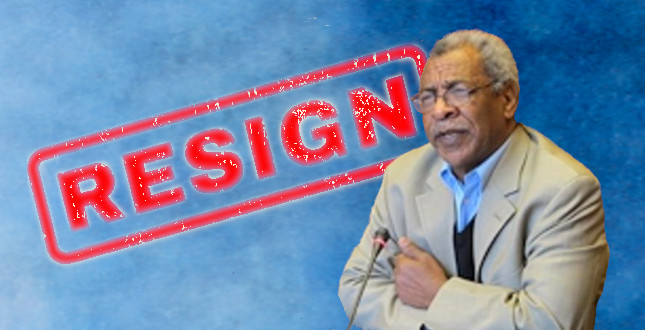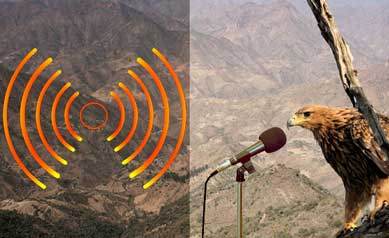The Risks And Challenges Facing The Youth Movements

No doubt many of us are glad when the youth make fast strides towards establishing a united and independent movement that will enable them to fully utilise the great potential they possess and effectively channel it to accelerate the national struggle for democratic change. Naturally, relationships between the older and younger generations are not expected to be so congruent particularly in thought lines, tastes and attitudes. But that alone may not justify the absence of a congenial atmosphere, lack of shared trust and coordination in place of the tension and scepticism that taints the prevailing relation is a matter that our society is obliged to seriously address.
The ado raised around the recent youth conference attests to such fact as the event unnecessarily and prematurely invoked conflicting reactions ranging from over enthusiasm to reservation and scepticism among some. Such reactions as much as they send worrying signals they are also an unfortunate reflection of how deep our differences and misunderstandings are .This could partly be attributed to the differences in thought due to generational gap and accumulated unresolved difference between political groups, in addition to the anomalous discontinuity of interrelations gap that were the result of the background–the controlled conditions under which our youth lived.
Despite the repeated failures of tackling our chronic differences that we (the older generation) have undergone we can solemnly agree to spare or keep away the youth from being dragged into and being caught in whirls of the vicious circle just for the sake of our nation’s and people’s interest.
We have to acknowledge and agree on the importance of youth active involvement in the political struggle for change. This is a historical necessity stemming from the fact that they constitute more than 60% of the population in Eritrea and represent the bulk of the active productive force.. Youth is interest- driven sector and can effect a change towards a better future since they are the sole owners and beneficiaries of that future; they ought to be the most qualified force to wage the struggle to unseat the dictatorial regime and usher a democratic change.
No doubt the youth has suffered the most as victims of the intensive mental harassment, torture and brainwashing and have been exposed to systematic dehumanisation and indoctrination. They also have sustained immense physical sufferings and exploitations of all forms: incarceration, summary execution, merciless exploitation in forced labour, indefinite servitude under the so-called ‘development’ projects. They also became cannon fodder for the adventurous wars of the regime; and they are driven to seek refuge out side their country; some are paying heavy prices in the process. Thus they are the most knowledgeable about the strength and vulnerability of the regime which makes them well poised to struggle against it.
The current problems mainly arise from the lack a common language, lack of proper channels of communication to resolve differences, enhance better understanding and build trust between all sides.
These generational differences expressed in different forms are generally caused when attempting to adjust to new developmental changes where the older generation usually lags behind. The rapid technological advances and dispersed Eritrean Diaspora is exasperated the differences creating a wide gap in the misunderstanding . Such differences would have been resolved in any normal society but in our case things are aggravated by the abnormal intrusion in the course of natural developments since the society is bearing the brunt of war that has been destabilizing and damaging it for many years during the struggle era.
This was further aggravated by post-independence unnecessary wars and detrimental policies of the regime that damaged the psyche of the younger generation that has been isolated and by the regime. This has resulted in a discontinuity in natural transfer of society’s heritage from the old to the new generation who are deprived from unbiased knowledge of the heroic history of our struggle. Therefore, a void of more than twenty years has been created and the regime tried to fill with its distorted version of history. Thus taking all that in consideration the magnitude of the multiple and complex problems facing our youth. There are missing links in the chain of our relations and the understanding of our youth of the genuine history of our struggle and its agents. We should be patient with the youth to help create a conducive atmosphere to fill the void of history; we need to give the youth the necessary respect, space, confidence and the trust they badly need and deserve.
On one hand there are youth who lived almost all of their life at home and were recently forced to flee Eritrea and join the Diaspora, while on the other there are youth who never been to Eritrea because they lived most of their lives in either refugee camps in neighbouring countries or in far places. This heterogeneity in their backgrounds make their issue more complicated in addition to the factors mentioned above. Creating a common language of understanding between the generations and among the youth communities is of paramount importance
Fortunately we are finally noticing the ebbing out of the youth’s political apathy that has prevailed for long and is being replaced by the surge of active political engagement–something that we all hoped for. Thus we should encourage and support such moves morally and materially to give the youth the necessary breathing space.
The Arab Spring which represented the Arab youth is a sources of great inspiration as well as a useful lesson and experience that need to be seriously studied. Some relevant lessons learned from these revolutions that our youth can learn and make use of could be summarised as follows:
-
The change and democratic reforms were not easy but demanded great sacrifices, resilience and perseverance.
- There was no ready-made formula or process that is universally applicable, but each situation needs to improvise a system to fit the situation of the different countries. Some countries made great strides towards change in relatively shorter times and with less cost (Tunisia & Egypt) while others waged a prolonged struggle and paid dearly in the process (Libya & Yemen) and still others despite the high cost in lives and material are waging a bloody struggle and continuing steadfastly to accomplish the job of securing victory and realising full freedom (Syria).
- A revolution is a long turbulent process with ups and downs where changing of regimes are only the first step in a long and hard journey. Post regime-change period requires the need of a continued struggle to face the resistant diehards and remnants of the old establishments who fight hard in an attempt to abort, reverse or hinder the revolution from achieving its aims.
- The youth who have played the driving role behind the changes are also found to be the main force in the transitional stages. They safeguard and keep active vigil on preserving the revolutions in the right course and with unrelenting spirit and vigour and counteract the attempts of the revisionist forces by maintaining and mounting extensive pressure to realise the aims of the revolutions.
- Where the youth movement were more organised and well prepared were able to easily score victory over the resistant elements and they firmly marched towards successful transitional stages (Tunisia)
- Those countries had a relative degree of freedom in terms of having opposition parties, use of internet and satellite tv, which made peaceful resistance one of the possibilities or one of components of the struggle.
It is positive, healthy and heart chilling to see the fast growing youth movements in the Diaspora but it is equally important to see that this would not develop into copying or repeating the negative undesired factional fragmentation that infested the opposition camp resulting in small entities competing against each other. Understanding the full dimensions and the seriousness of the problem is necessary for the youth to take the initiative. And all concerned should help with facilitating the building of a sort of united or umbrella movement that has an unwavering strong political will and which is united in purpose and mechanism to embark on the process of change.
The Youth Conference held recently in Debre Ziet (Beshiftu) despite the reservations and criticism –mainly about the lack of transparency in the participation process and the agenda which I myself share to certain extent– I believe it is a step in the right direction on the way to building a united strong youth movement in light of conference outcome. I hope the newly formed youth organisation’s temporary leadership would focus on the main mandated task of conducting a comprehensive participatory preparation process without which an all inclusive successful unity conference would not be accomplished. Our recent past experience of national conferences confirms that good and genuine intentions are not in themselves enough from the political perspective and the reality to guarantee a fair participation and inclusion of all.
The way forward should be a subject of concern and discussion not only confined to the newly formed leadership but should include all concerned youth groups. Thus the main task of the sponsoring body of the youth organisation and its temporary leadership has to furnish the ground either by creating a common Facebook page and holding seminars in addition to using all possible media venues etc that facilitate the exchange of views necessary for initiating a purposeful dialogue in an all-inclusive youth group. An intensive preparation stage that includes dialogues and seminars should be carried out with the purpose of converging views, developing perceptions and strategies for the fundamentals of the change, crystallising and formulating consensual and conceptual agreements and principles that all would adopt .The good will token and initiative should be demonstrated with the formation of a preparatory committee that includes and represents all willing youth groups in equal footing. Thus the process of preparation, convening and the outcome of the conference will be shared and owned equally by all the youth groups which would certainly help to contribute in building a genuine united youth organization that would effectively consolidate, concert and accelerate the struggle in realising the aspired democratic change.
Nature requires the continuity of social life, and sooner or later the older generations have to give way and pass over their legacy to the younger generation who in turn have to respect, value and assimilate the positive aspects of that legacy into their own and thus life continues as unbroken chain that links the past, the present and prepare for the future. This general sequence of order applies to politics, cultures, traditions and norms etc. The struggle for change that we are waging is not an exception. We are all in an ever lasting relay race of history where the fore runners have to pass over the duty at a certain intervals to new fresh legs and recede so that the cycle of life continues in a natural process.
The lesson we can drive from this is that we (older generation) must realise it is time now to pass over the role and leadership of the opposition struggle to the young generations. But that is an evolutionary process during which the youth have to prove they are capable of the task to be entrusted with and they should earn this trust by practice.
I wish to reiterate what the Tunisian citizen that turned to be the icon of the revolution (Ahmed Haremna) said to Aljazeera when Bin Ali was deposed: “I have lived all my life and aged to see this moment of victory being finally realised by the young generation despite the fact that we, the old generations unsuccessfully struggled all our life years to attain.”



Awate Forum